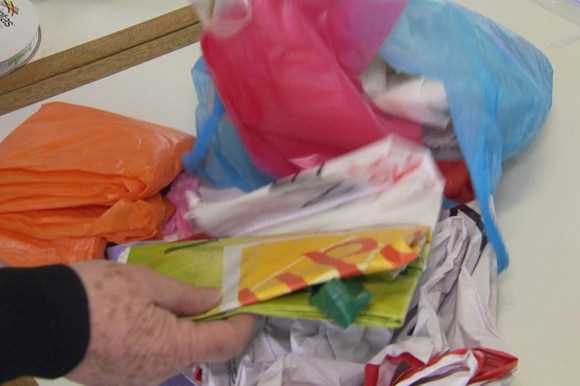Switzerland, known for its picturesque landscapes and commitment to environmental conservation, has recently implemented a ban on plastic bags. This move is part of the country’s ongoing efforts to reduce plastic waste and promote sustainable practices. If you’re planning a visit to Switzerland or simply curious about the ban, here’s what you need to know.
Why the ban?
Plastic bags have long been a major contributor to environmental pollution and pose significant threats to both land and marine ecosystems. Recognizing the urgency of the situation, Switzerland has taken a proactive approach to tackle plastic waste. By prohibiting the use of plastic bags, the country aims to encourage the adoption of reusable alternatives and raise awareness about the importance of waste reduction.
How does the ban work?
The ban on plastic bags in Switzerland is comprehensive and covers all retail establishments, including supermarkets, shops, and restaurants. As of the 1st of January 2022, single-use plastic bags are no longer available at the checkout counters. Instead, customers are encouraged to bring their own bags or use eco-friendly alternatives, such as cloth bags or paper bags made from recycled materials.
The impact so far
Since the implementation of the ban, Switzerland has already seen a significant reduction in plastic bag usage. Consumers have been quick to adapt to the new regulations and have embraced more sustainable options. Additionally, the ban has sparked a positive shift in public perception, creating a greater sense of responsibility towards the environment and inspiring individuals to make conscious choices.
What can we learn from Switzerland?
Switzerland’s ban on plastic bags serves as a shining example of how a small change in everyday practices can have a big impact on the environment. It highlights the importance of individual actions and collective efforts in combating plastic pollution. As countries around the world grapple with the devastating consequences of plastic waste, Switzerland’s initiative provides hope and inspiration for a more sustainable future.
- Overview of Switzerland’s Plastic Bag Ban
- Reasons for the Ban
- Impact of the Ban
- Environmental Consequences of Plastic Bags
- Pollution
- Wildlife Harm
- Energy Consumption
- Alternatives to Plastic Bags
- 1. Reusable Tote Bags
- 2. Paper Bags
- 3. Mesh Produce Bags
- How Switzerland’s Ban Affects Businesses
- Challenges for Businesses
- Opportunities for Businesses
- Q&A:
- Why did Switzerland ban plastic bags?
- When did Switzerland ban plastic bags?
- What are the alternatives to plastic bags in Switzerland?
- Will there be any exceptions to the plastic bag ban?
Overview of Switzerland’s Plastic Bag Ban
Switzerland has implemented a ban on plastic bags in an effort to reduce plastic waste and protect the environment. The ban was introduced on January 1, 2020, and applies to all retailers across the country.
Under the ban, lightweight plastic bags, including those made from biodegradable materials, are prohibited. Retailers are required to provide alternative options, such as reusable bags, paper bags, or bags made from other materials that are more environmentally friendly.
Reasons for the Ban
The ban on plastic bags in Switzerland is driven by several reasons:
-
Environmental concerns: Plastic bags are a major source of pollution and pose a significant threat to wildlife. They often end up in ecosystems, where they take hundreds of years to decompose. By banning plastic bags, Switzerland aims to reduce this pollution and protect its diverse ecosystems.
-
Waste reduction: Plastic bags contribute to the growing problem of waste accumulation. By encouraging the use of alternative bags that are more durable and reusable, Switzerland aims to reduce the amount of waste generated by single-use plastic bags.
-
Energy consumption: The production of plastic bags requires significant amounts of energy and fossil fuels. By reducing or eliminating the use of plastic bags, Switzerland aims to reduce its energy consumption and reliance on non-renewable resources.
Impact of the Ban

The plastic bag ban in Switzerland has had several positive impacts:
-
Reduction in plastic waste: The ban has significantly reduced the amount of plastic bags being used and discarded in Switzerland. This has led to a reduction in plastic waste and litter in the environment.
-
Promotion of sustainable alternatives: The ban has encouraged the use of reusable bags, paper bags, and other environmentally friendly alternatives. This shift in consumer behavior promotes sustainability and reduces reliance on single-use plastic.
-
Increased awareness: The ban has raised awareness about the environmental impact of plastic bags and the need for sustainable practices. It has sparked conversations and actions regarding waste reduction and has encouraged individuals to consider the environmental implications of their choices.
Overall, the plastic bag ban in Switzerland is a significant step towards a more sustainable and environmentally conscious society. It serves as a model for other countries and demonstrates the positive impact that legislation can have in reducing plastic waste.
Environmental Consequences of Plastic Bags
Plastic bags, although cheap and convenient, have significant environmental consequences. The production and disposal of plastic bags contribute to various environmental issues, including pollution, wildlife harm, and energy consumption.
Pollution
Plastic bags often end up as litter, polluting our surroundings. They can be seen scattered in streets, parks, and water bodies. When not properly disposed of, plastic bags can clog drainage systems, leading to flooding. Additionally, when bags are burned, they release toxic fumes, contributing to air pollution.
Wildlife Harm
Many wildlife species are negatively affected by plastic bags. Marine animals often mistake floating plastic bags for food and ingest them, leading to choking, internal injuries, and even death. Land animals can also become entangled in plastic bags, cutting off their circulation or trapping them, resulting in injuries and suffocation.
Energy Consumption
The production of plastic bags requires significant energy resources. This process involves extracting and refining petroleum, which is used as a raw material for plastic production. The energy consumed during manufacturing contributes to greenhouse gas emissions and contributes to climate change. Additionally, the transportation of plastic bags to stores and disposal sites also consumes energy and contributes to carbon emissions.
| Environmental Consequences of Plastic Bags |
|---|
| Pollution |
| Wildlife Harm |
| Energy Consumption |
Alternatives to Plastic Bags
With the ban on plastic bags in Switzerland, it’s important to explore alternative options for carrying our groceries and other purchases. Here are some environmentally friendly alternatives to plastic bags:
1. Reusable Tote Bags
Reusable tote bags are a great option as they can be used multiple times, saving you money in the long run. Made from durable materials like canvas or jute, these bags are strong enough to carry heavy items and are easy to clean. Keep a few of these in your car or purse so you’re always prepared for shopping trips.
2. Paper Bags

Paper bags are a classic alternative to plastic. Look for bags that are made from recycled paper to reduce the environmental impact. While they may not be as durable as plastic or reusable bags, they can still be used for multiple purposes, such as carrying books or storing items at home.
Tip: If you’ve forgotten your reusable bags or don’t have any on hand, consider asking for paper bags instead of plastic at the store.
3. Mesh Produce Bags
When it comes to buying fruits and vegetables, opt for mesh produce bags instead of plastic bags offered at the grocery store. These lightweight bags are breathable, allowing your produce to stay fresh for longer and reducing the need for single-use plastic bags.
Tip: If you don’t have mesh produce bags, you can also bring your own reusable containers or wrap produce in cloth bags.
By incorporating these alternatives into our shopping routines, we can make a positive impact on the environment and reduce our plastic waste. Remember, every small step counts!
How Switzerland’s Ban Affects Businesses
Switzerland’s recent ban on plastic bags has had a significant impact on businesses across the country. With the intent to reduce plastic waste and promote sustainability, the ban has introduced a range of challenges and opportunities for both large and small enterprises.
Challenges for Businesses
One of the main challenges that businesses face as a result of the ban is finding suitable alternatives to plastic bags. Many retailers in the country relied heavily on plastic bags as a convenient and cost-effective packaging option. Now, they must invest in and incorporate eco-friendly alternatives, such as paper or reusable bags, into their operations. This transition can be costly, especially for smaller businesses with limited resources.
Additionally, businesses must educate their staff and customers about the new regulations and encourage them to adopt sustainable practices. This involves training employees on the proper use of alternative bags and raising awareness among customers about the environmental benefits of using reusable bags. It may take time and effort to change consumer behavior and preferences.
Opportunities for Businesses
Despite the challenges, Switzerland’s ban on plastic bags also presents opportunities for businesses to differentiate themselves and attract environmentally conscious customers. Retailers that proactively embrace sustainable packaging solutions can enhance their brand image and reputation.
Some businesses have seized this opportunity by offering their own branded reusable bags or collaborating with local artisans to create unique, eco-friendly packaging options. By doing so, they can enhance their customers’ shopping experience while aligning with the values of sustainability and environmental responsibility.
| Challenges | Opportunities |
|---|---|
| Investing in eco-friendly alternatives | Enhancing brand image and reputation |
| Educating staff and customers | Attracting environmentally conscious customers |
| Changing consumer behavior and preferences | Creating unique, eco-friendly packaging options |
In conclusion, Switzerland’s ban on plastic bags presents both challenges and opportunities for businesses. While the transition to alternative packaging solutions may be costly and require education efforts, forward-thinking businesses can use this ban to their advantage by aligning with consumer preferences for sustainability and enhancing their brand image.
Q&A:
Why did Switzerland ban plastic bags?
Switzerland banned plastic bags in order to reduce plastic waste and protect the environment. Plastic bags are a major source of pollution and can take hundreds of years to decompose.
When did Switzerland ban plastic bags?
Switzerland implemented the ban on plastic bags on January 1, 2020.
What are the alternatives to plastic bags in Switzerland?
There are several alternatives to plastic bags in Switzerland, including reusable cloth bags, paper bags, and biodegradable bags made from materials like cornstarch.
Will there be any exceptions to the plastic bag ban?
Yes, there are some exceptions to the plastic bag ban in Switzerland. Small plastic bags used for fruits, vegetables, and bulk products are allowed, as well as bags for raw meat and fish to prevent contamination.